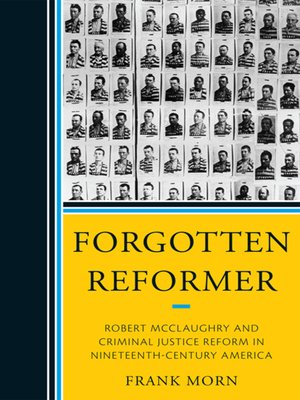Forgotten Reformer
ebook ∣ Robert McClaughry and Criminal Justice Reform in Nineteenth-Century America
By Frank Morn

Sign up to save your library
With an OverDrive account, you can save your favorite libraries for at-a-glance information about availability. Find out more about OverDrive accounts.
Find this title in Libby, the library reading app by OverDrive.



Search for a digital library with this title
Title found at these libraries:
| Loading... |
Forgotten Reformer traces criminal justice practice and reform developments in late nineteenth-century America through the life and career of Robert McClaughry, a leading reformer. As a warden of one of America's toughest prisons, as a chief of police of Chicago, as a superintendent of two different reformatories, and as one of the first wardens of the federal prison system, McClaughry developed and led a reform movement that resonates today. As a founding member of the reformatory movement that sought to 'save' young first offenders, McClaughry advocated new sentencing structures, probation, parole, and rehabilitative regimes within new institutions for young first offenders called reformatories. McClaughry then successfully got these reformatory ideals placed into adult prisons. In addition, McClaughry became American's main advocate for a criminal identification method called the Bertillon system. He set up the first identification bureaus at the Illinois State Penitentiary, the Chicago police department, and the federal prison at Leavenworth, Kansas and these became models for others across the country. Finally, as a founding member of the National Association of Chiefs of Police (today the International Association of Chiefs of Police) and the National Prison Assocation (today American Corrections Association), McClaughry sought to professionalize police and prison administrators.






